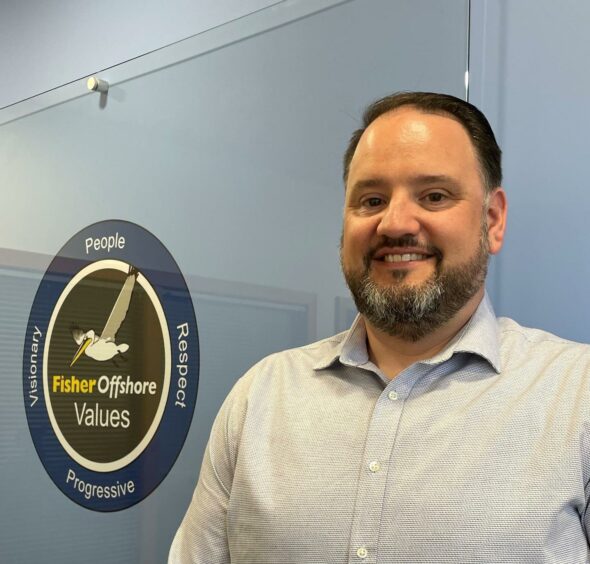
Taking on a newly created role, for a new (for me at least) employer – mid-pandemic and as the narrative surrounding oil and gas dramatically shifted, was not something I took lightly. The opportunity and its timing, however, could not be ignored!
My passion for decommissioning has evolved over the (nearly) two decades I’ve spent innovating and growing well abandonment and subsea severance businesses both in the UK and Gulf of Mexico (GoM). I’ve long championed the development of a true single-source solutions provider for decommissioning – a business working in symbiosis with its clients to create operational efficiencies and reduced environmental impact.
I’d watched with interest as James Fisher Offshore (JFO) grew on my competitor radar. In recent years the momentum it’s built, its commitment to investment in technology, developing its team and the leadership’s vision to deliver a full range of services and equipment across decommissioning project life spans, echoes my own vision.
The JFO team has consistently demonstrated the strength of its convictions and a deep understanding of the challenges facing the operators and the wider decom supply chain and its stakeholders. Whether working smartly in-house and collaboratively to develop solutions, onboarding technologies, acquiring where necessary and consistently upskilling a multiskilled workforce, the tactics the team has employed have been proactive and dynamic.
Decommissioning is an incredibly exciting space to work in. The times we live in, too, are exciting. Yes, there are pressing and controversial challenges – but there are also opportunities. Effectively we’re creating solutions to challenges that go far beyond cleaning up our own back yard here in the North Sea. What we do here in our established and regulated basin will have global consequences, not just for our industry, but for our environment too.
Back in July, the Oil and Gas Authority (OGA) revealed a £2bn reduction in the 2021 estimate for offshore decommissioning in the UKCS this year, bringing the total projected decommissioning cost for the UKCS to £46bn. This positive trajectory means delivering on the 35% cost reduction target by the end of 2022 remains achievable and is also a positive for the UK government’s commitment to reach net zero emissions by 2050.
The Authority has credited two areas with positively impacting cost reduction – improved cost estimating and the reduction in subsea P&A costs in UK waters. These are two key areas in which JFO has delivered on for projects here in the UK, the Middle East and Asia Pacific regions. Through comprehensive back-deck solutions and multiskilled teams, cutting and lifting can be achieved in a single trip; significantly reducing costs both fiscal and environmental. This also has the benefit of more accurate estimating and first right time success.
Of course, the challenges posed by decommissioning are not static, no two wells are the same, and variables are as diverse as weather, regulatory environments and politics. Liability, loopholes and un-preparedness continue to hit the headlines, as governments from Australia to America tally up the potential cost of decommissioning – and these bills will be significant.
Earlier this year, Wood Mackenzie estimated an Australian decom spend of £40bn, the wider Asia-Pacific hitting $100 billion, and predicted US costs of around $50bn (Carbon Tracking Initiative, 2021). The highest percentage of this spend is expected within the next two to 10 years making the ability to deliver efficiencies, cost reductions and minimise environmental impact remain essential and their need, immediate.
For businesses like JFO, and countless others throughout the decommissioning supply chain, these numbers provide exciting opportunities globally. In turn this presents the opportunity to continuously develop and improve our solutions, capabilities and enhance growth potential for our personnel.
At the time of writing, it remains to be seen if any outcomes of COP26 will accelerate global decommissioning. Like others across the sector, we’ve had projects pushed to the right this year – the result of pandemic-related delays to operator’s timelines and uncertainty. What I can say for certain is that as we look towards 2022, we have a stronger pipeline of awarded work than ever before, complemented by a stronger team and capabilities. It’s certainly an exciting time to have joined JFO as Decommissioning Director. Watch this space.
Recommended for you
